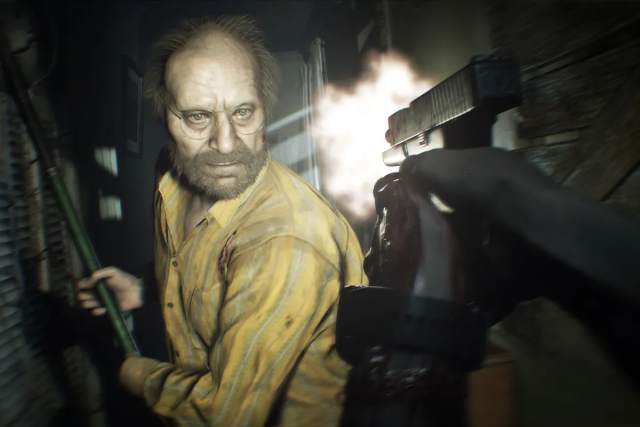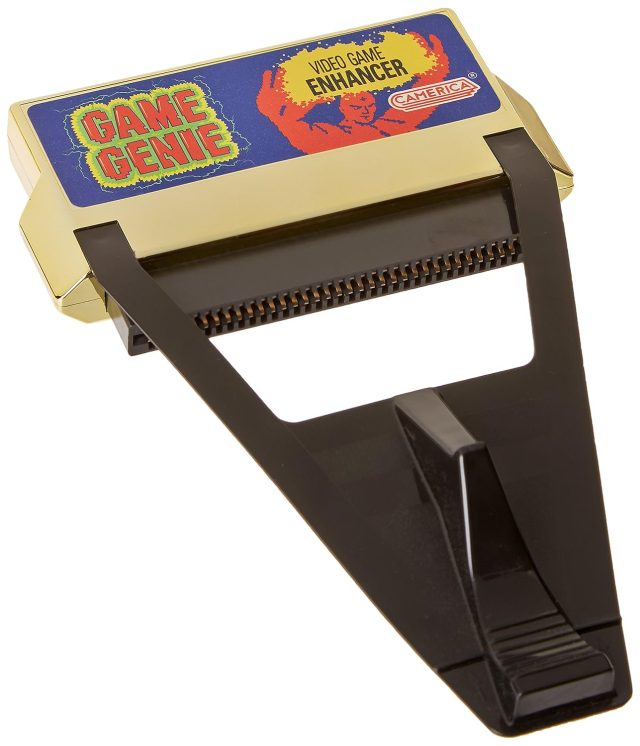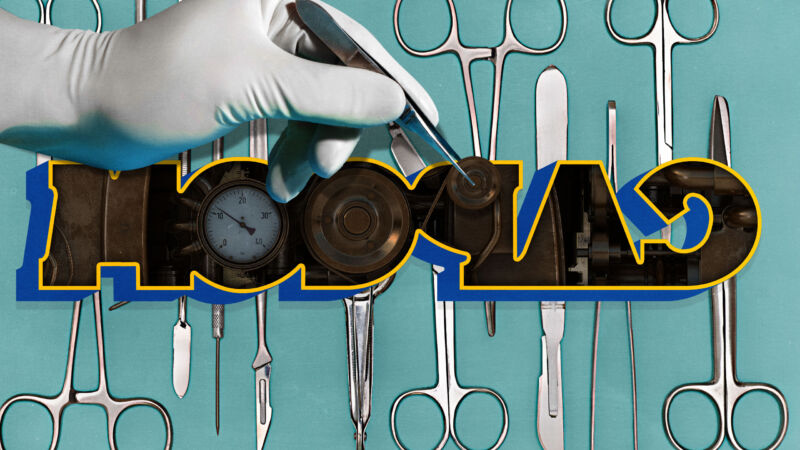For most PC gamers, the ability to update their game with a wide variety of mods is a huge benefit they can claim over most (but not all) console players. But Japanese publisher Capcom (Resident Evil, Street Fighter) says it sees unauthorized modding of PC games as a problem akin to cheating, bringing with it the risk of headaches for the company's reputation and support costs. That's according to a 50-minute presentation covering "anti-cheat and anti-piracy measures in PC gaming" that was posted to the Capcom R&D YouTube channel last week (and noticed recently by GamesRadar).
The presentation describes modding as an "inseparable part of PC gaming" and a reflection of a PC platform that lets you "do anything you want compared to the game console." At the same time, these facts make the PC a place "that allows you to create freely, but [where] people are also free to tamper with the game."
“No different than cheating”
One obviously bad form of PC game tampering, according to Capcom, is piracy. If anti-piracy tools are not used for PC titles, Capcom says, "pirated copies appear in less than a day [and] paid content such as DLC will be made free," leading to what the company calls "an immediate loss of profit." Then again, Capcom admits that the size of this profit loss is "unobservable" because there is no suitable control case to compare it to. "We can only speculate on the cost of cheats and piracy," Capcom says, "but it's clear that if we don't do anything, the damage will surely be greater."

The Denuvo protection on Capcom's Resident Evil 7 was broken less than a week after the game's release in 2017.
Capcom
The value of that anti-piracy protection also depends on how well it holds up to crackers: Capcom's own
Resident Evil 7 had its Denuvo protection
cracked in less than a week back in 2017, a result that Denuvo
still said was better than nothing. There's also some evidence that Capcom's in-house anti-tamper technology in
Resident Evil 8 resulted in stuttering that was not present in a cracked version, highlighting another potential cost of anti-piracy technology. And let's not forget
the backlash Capcom faced when a "kernel level" rootkit installed as an "anti-crack solution" in
Street Fighter V opened up potential backdoor access for malicious software.
Piracy aside, the presentation then talks about mods as "another problem" inherent to PC gaming. The presentation takes pains to acknowledge that "mods are popular with users because they allow them to add or change various features to an existing game," and that "the majority of mods can have a positive impact on the game." But in practically the same breath, Capcom goes on to say that "what [the mods] are doing is no different than cheating."
Part of the "problem" identified here is merely a technical one; since mods alter game code and memory values in ways similar to cheating tools, Capcom notes that "mods that are not officially supported by the game are impossible to distinguish from cheat tools, implementation-wise." But Capcom then talks about the "reputational damage caused by malicious mods," which can be "detrimental to the company."
"There are a number of mods that are offensive to public order and morals," Capcom says. "When these are disseminated, the image of the product is tarnished and branding is affected." When these mods are "mistaken for legitimate implementations" it can cause "reputational damage" and "bad publicity," the company said.
Don't be fooled, Thomas the Tank Engine is not a "legitimate implementation" of Resident Evil, despite this video footage.
Sure, we suppose there are some naive players who might see Thomas the Tank Engine in Resident Evil or Psylocke in Street Fighter VI and assume they are "legitimate implementations" created by Capcom. For the most part, though, we think most players can differentiate between the official version of a game and one with new characters or features added by mods.
Capcom also makes note of mods that can "destroy the game by cheating." Here, though, the presentation makes no distinction between cheating in single-player games—which can
increase a player's enjoyment significantly—and cheating in online multiplayer games—which can
easily ruin the competitive balance.
But the bigger problem, according to Capcom, is faulty mods that can "cause freezes and corrupt save data." These lead to additional support calls, which can be particularly difficult to investigate and fix for support staff, Capcom says. That, in turn, increases costs that "are supposed to be used for creating high-quality games. If development costs are affected, the quality of the game will decline. This will lead to a drop in sales and loss of revenue, as well as disappointment among users."
For these kinds of mod support tickets to cause "the quality of the game [to] decline," as Capcom says, we'd have to imagine they represent a sizable proportion of a game's development budget. At the same time, it's hard to imagine adversely affected modders being anything more than a rounding error compared to a game's total support budget, much less its full development budget.
A love-hate relationship

Nintendo took Game Genie-maker Galoob to court over the mod-like
functions of the "Video Game Enhancer."
Amazon
This isn't the first time a major publisher has taken a public stand against game modding. Back in the '90s, Nintendo sued Game Genie maker Galoob for its passthrough cartridge add-ons, which let users make simple memory-based cheats and mods on consoles. "They are taking our copyrighted work and changing it," former Nintendo VP Howard Lincoln said at the time. "There's no difference between what's happening here and if I were to write Gone with the Wind and change the characters, change the story, change the ending."
A circuit court ruled in Galoob's favor, saying the specific form of "derivative work" created by Game Genie was covered by fair use. But that hasn't stopped other companies from publicly taking on modders. Rockstar
tried to ban the popular FiveM mod for Grand Theft Auto V back in 2015, saying it "facilitated piracy" via an "unauthorized alternate multiplayer service." Just a few months ago, though, Rockstar
acquired the company behind FiveM, citing "excitement" over the "new ways to expand the possibilities of
Grand Theft Auto V and
Red Dead Redemption 2, particularly through the creation of dedicated roleplay servers."
Also in 2015, Dead or Alive maker Tecmo publicly asked the modding community to "play our game in a good and moral manner" upon the first release of a PC edition of the fighting game series. "We have to deal with mod issues from an IP holder perspective," Koei Tecmo producer Yosuke Hayashi said at the time, a possible nod to the many unauthorized "nude" mods that already existed for the console game's already scantily clad characters.
For Capcom, at least, it seems unauthorized mods will continue to be targeted by the company's in-house anti-piracy and anti-cheat tools, which the company discusses in depth during the video presentation. Still, we have to think that lumping mods and "cheats" in the same vast bucket risks damaging what can and should be a vibrant and vital part of a PC game's community.



3175x175(CURRENT).thumb.jpg.b05acc060982b36f5891ba728e6d953c.jpg)


Recommended Comments
There are no comments to display.
Join the conversation
You can post now and register later. If you have an account, sign in now to post with your account.
Note: Your post will require moderator approval before it will be visible.